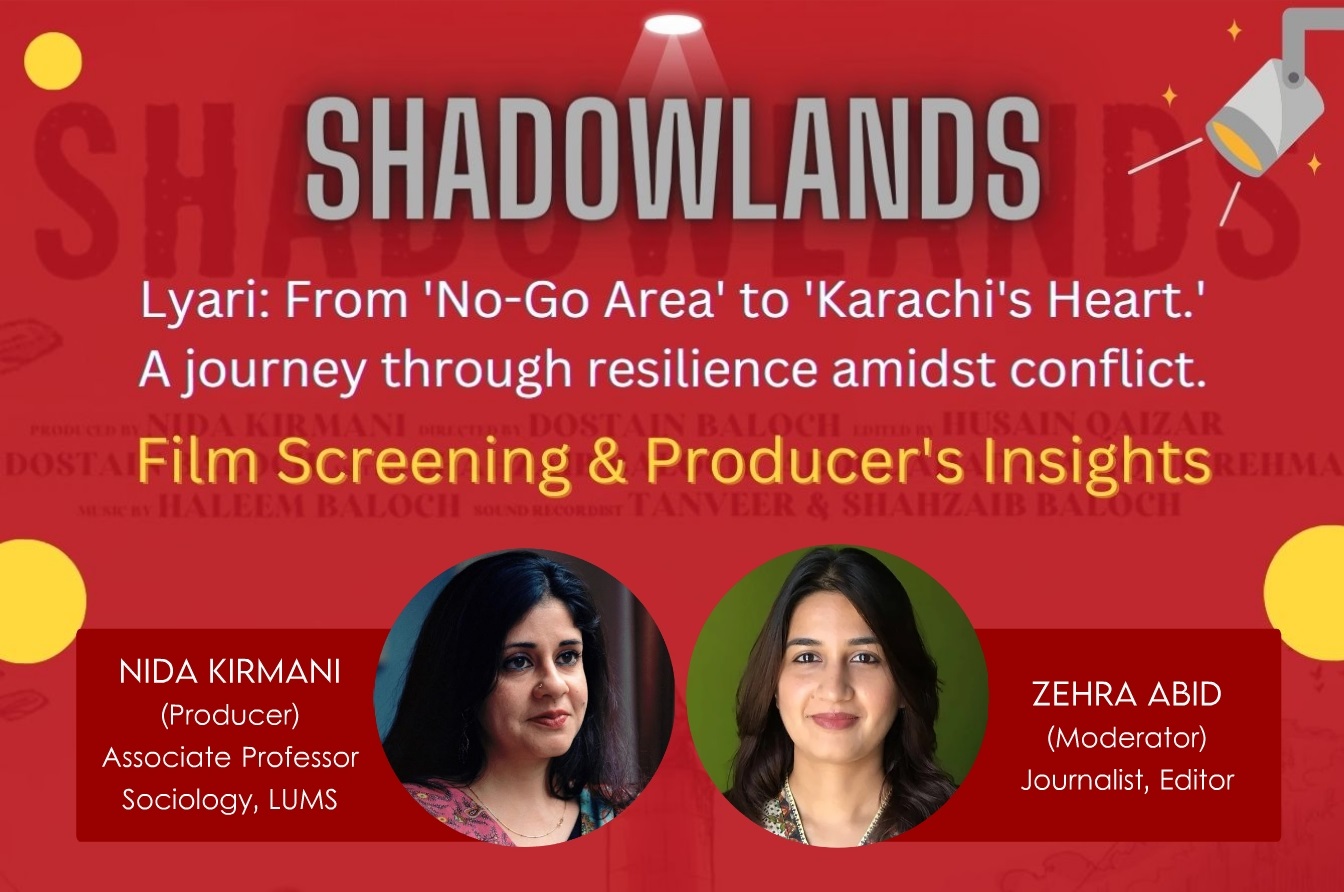
Shadowlands: Screening and Producer’s Insights
One of the oldest settlements in Karachi, Lyari has been the site on-going violence between political parties, criminal gangs and law enforcement agencies since the early 2000s. For this reason, Lyari, has been labeled by law enforcement agencies and the media as one of several ‘no-go areas’ in the city. However, residents of Lyari tell a different story, referring to this area as ‘Karachi ki maan’ or the mother of Karachi. For Lyari’s residents, their locality has continuously shifted from being a space of protection against the hostile social and political environment of the city to a space of terror at the hands of local criminal gangs and law enforcement agencies. While the conflict has gradually subsided since 2013, the state-led Operation came with its own violence with many residents losing family members to extrajudicial killings (‘encounters’). Many others are still in prison for alleged involvement in the gangs. Furthermore, the roots of the conflict—poverty, drugs, and the conflict between political parties—remain factors that shape the area. Hence, while Lyari may officially be at ‘peace’, residents are aware the violent conflict may erupt at any time in the future. This documentary follows two residents of Lyari, both of whom have lost family members to police encounters. Through telling their stories, the documentary sheds light on the on-going ramifications of violence and to question whether peace has truly been achieved for the people of Lyari.
About the Producer:
Nida Kirmani is as Associate Professor of Sociology at the Mushtaq Ahmed Gurmani School of Humanities and Social Sciences at the Lahore University of Management Sciences. She was the Madeleine Haas Russell Visiting Associate Professor of South Asian Studies for the 2022 – 2023 academic year at Brandeis University’s South Asian Studies Program. Prof. Kirmani is a feminist public intellectual who has published widely on issues related to gender, Islam, women’s movements, development, and urban studies in India and Pakistan.
The screening will be followed by a discussion with Prof. Nida Kirmani, moderated by Zehra Abid.
